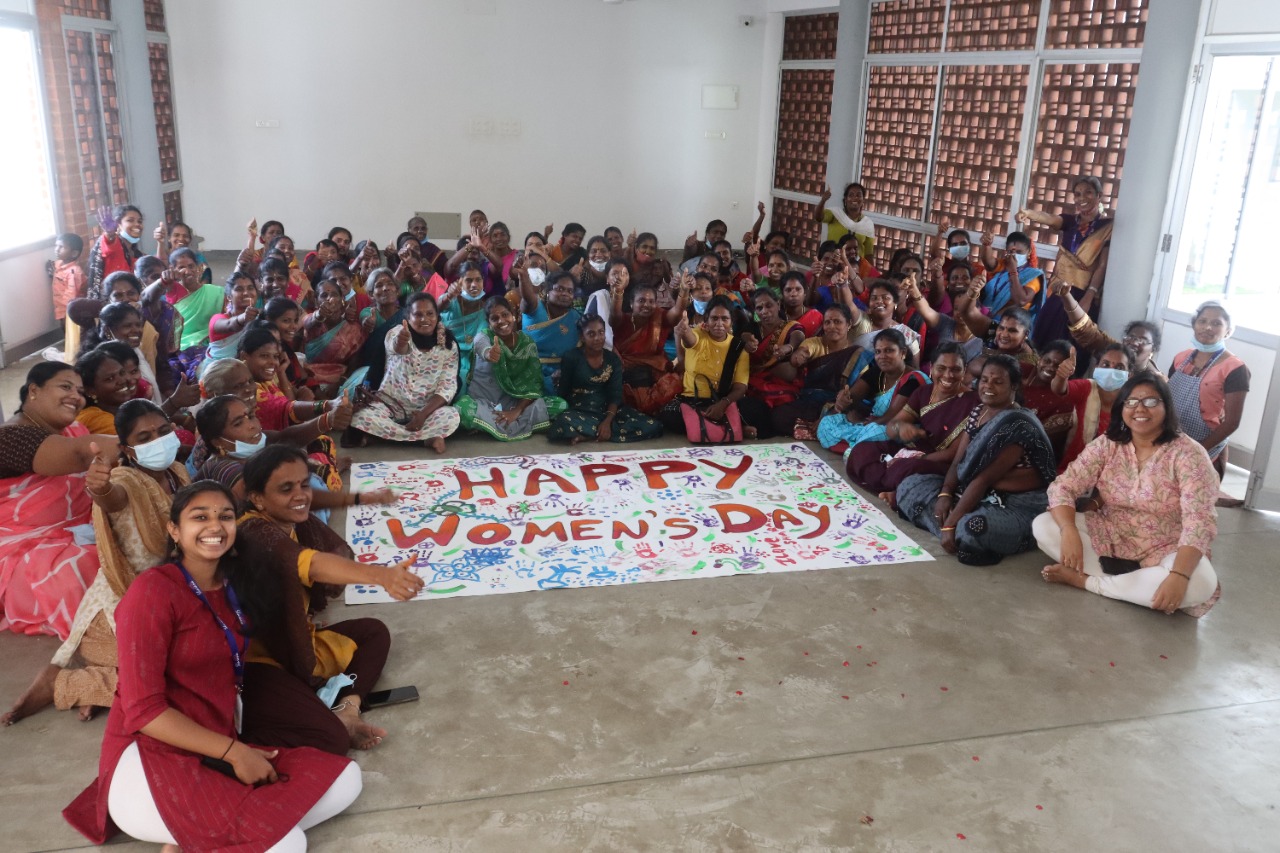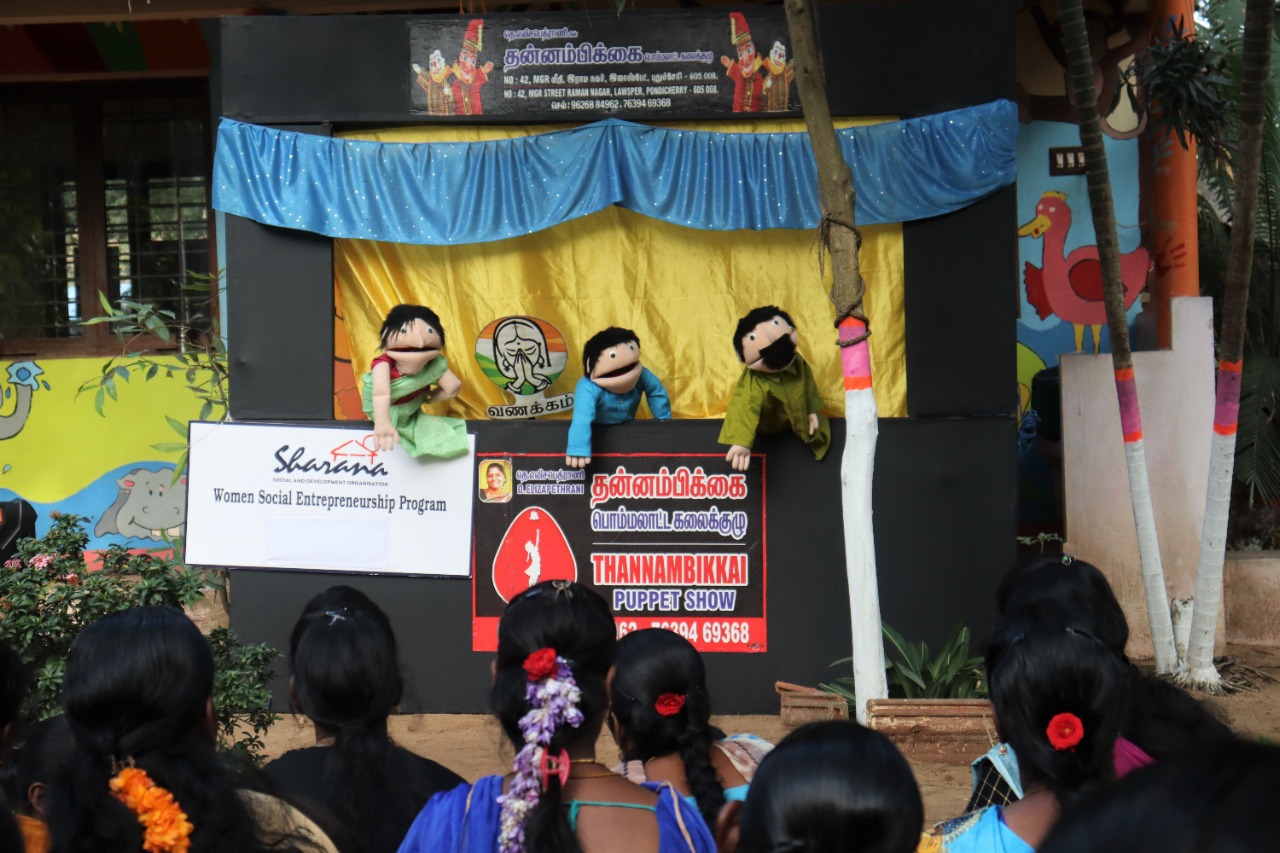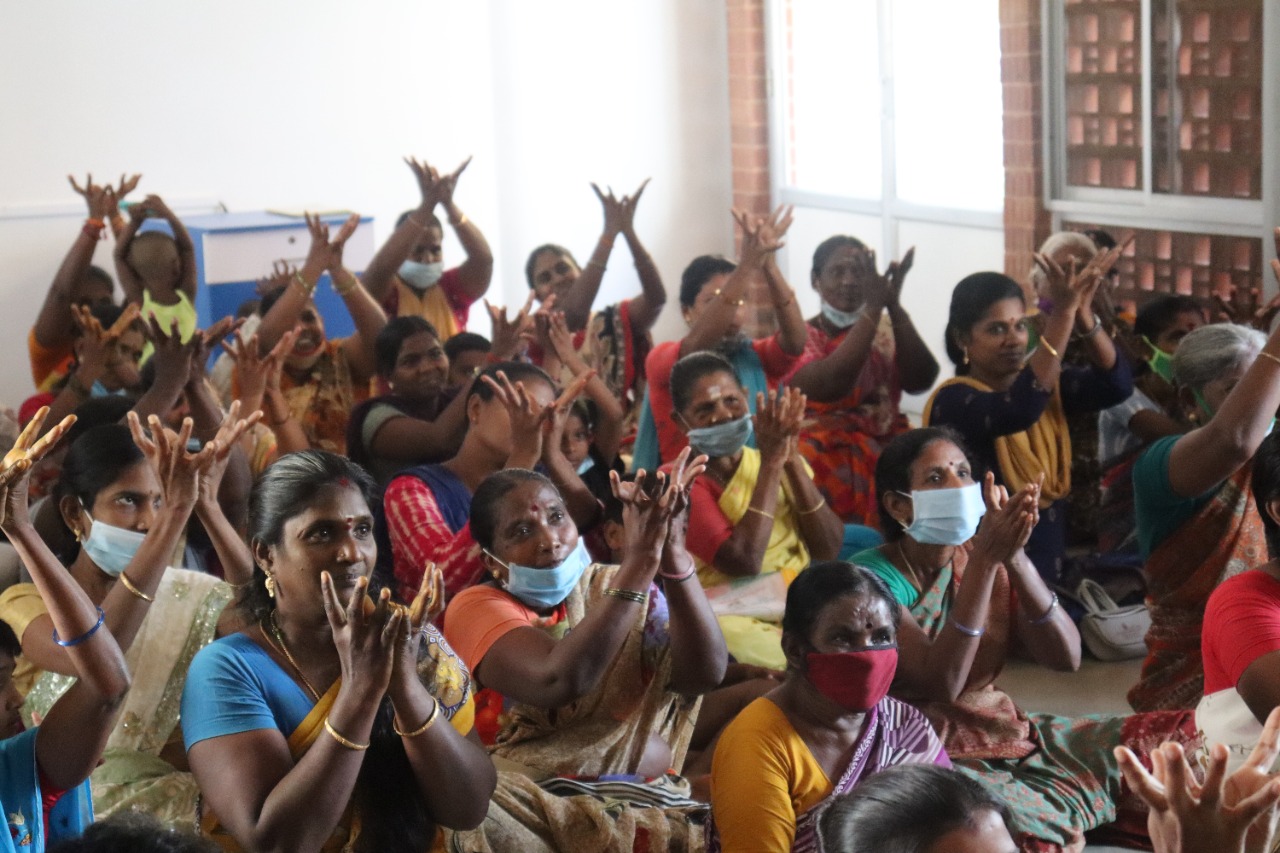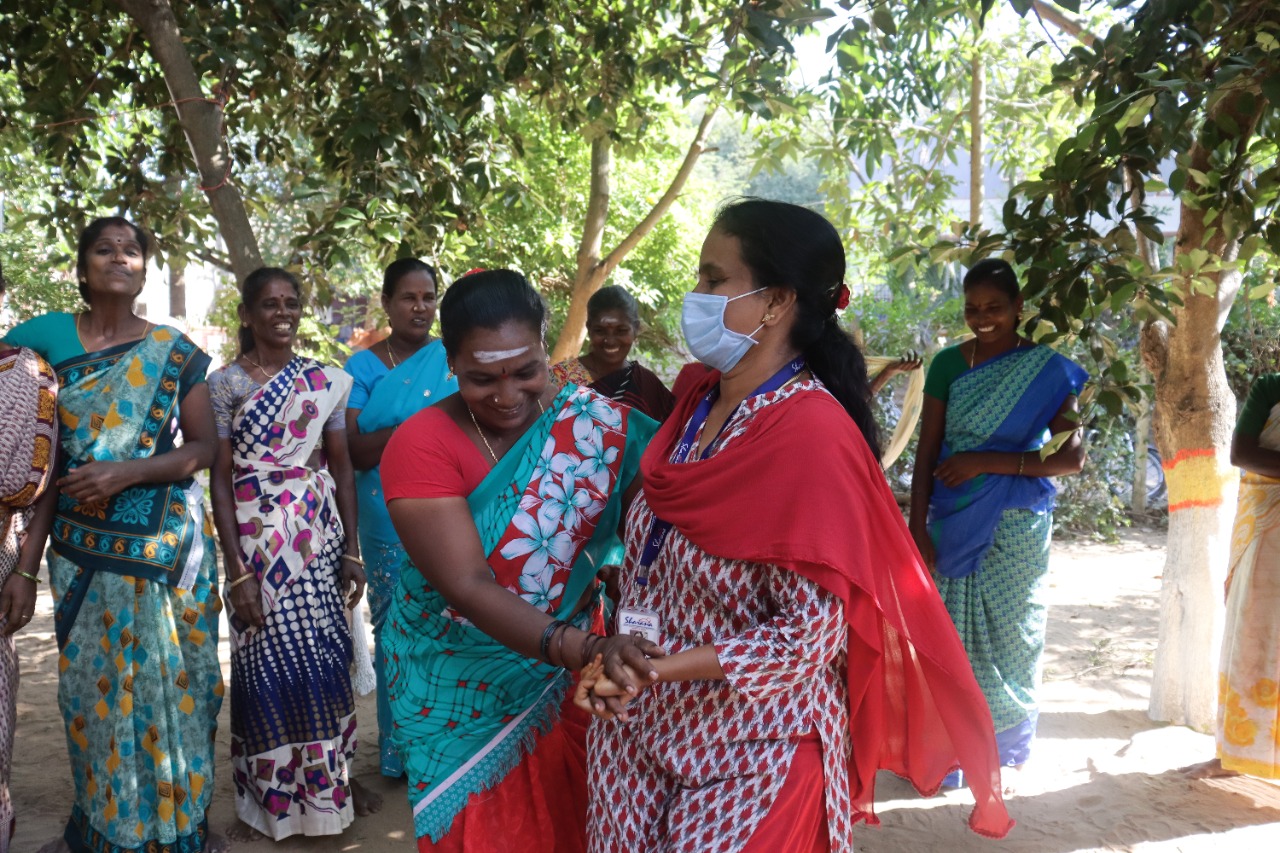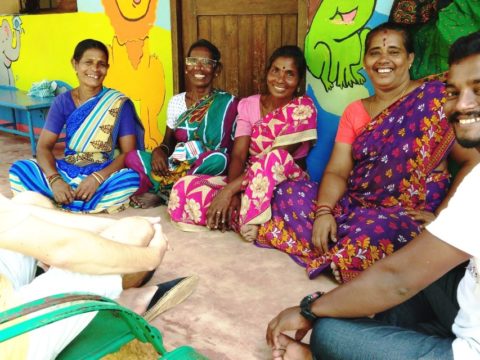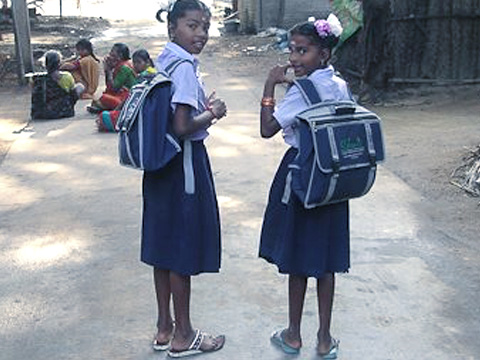– penned by our board member Mrs. Alo Pal
The village sits together, the stage is set before them, everybody likes a good show, a departure from the routine with the buzz of a clan assembled in anticipation of fun and entertainment. And thus, a puppet show in the village focused on issues such as alcohol abuse, encourages women to step out of their comfort zones of self-effacement. The show also weaves in information about Government schemes and when this event is repeated in the social center in the city, the curation of topics is specific to the urban setup.
When we think of Government Schemes, many in the cities have as much disconnect with the needs and the values of certain schemes as the jaded have, speaking of hunger alleviation instead of a mission to the moon. A Rs 25,000 grant to Below Poverty Line (BPL) families with two girl children who have passed the 12th we understand easily, but many would scowl at the Government giving a 4gram gold Thali to widows who are getting their daughters married. It may seem redundant, dubious even as a lure, but if we have even the slightest empathy towards the less privileged this is indeed a valuable symbolic token.
The puppet show also informs the audience about Women’s Police Stations, Counselling centers for women as well as the utilities of a Women’s Helpline – 181.
One of the oldest tools to justify keeping women suppressed are adages that are either anachronistic or unjustified. The power of the adage is that it is accepted and applied without thought. But there are idioms that are empowering too. So, an interactive session around these sayings becomes a catalyst for pause and thought, and women are helped to overcome the automatic acceptance of such saying and embrace those that empower.
- It is tribal – there is a reason why women love to talk, and you may be surprised as to how much such talk is less about gossip and more about sharing. Less about talking more about finding a voice, less about vanity more about solidarity. When women sit around in a circle and are encouraged to talk about their journeys it is a collective lifting of burdens, shedding of baggage, sharing of common struggles and triumphs. It is an antidote to loneliness.
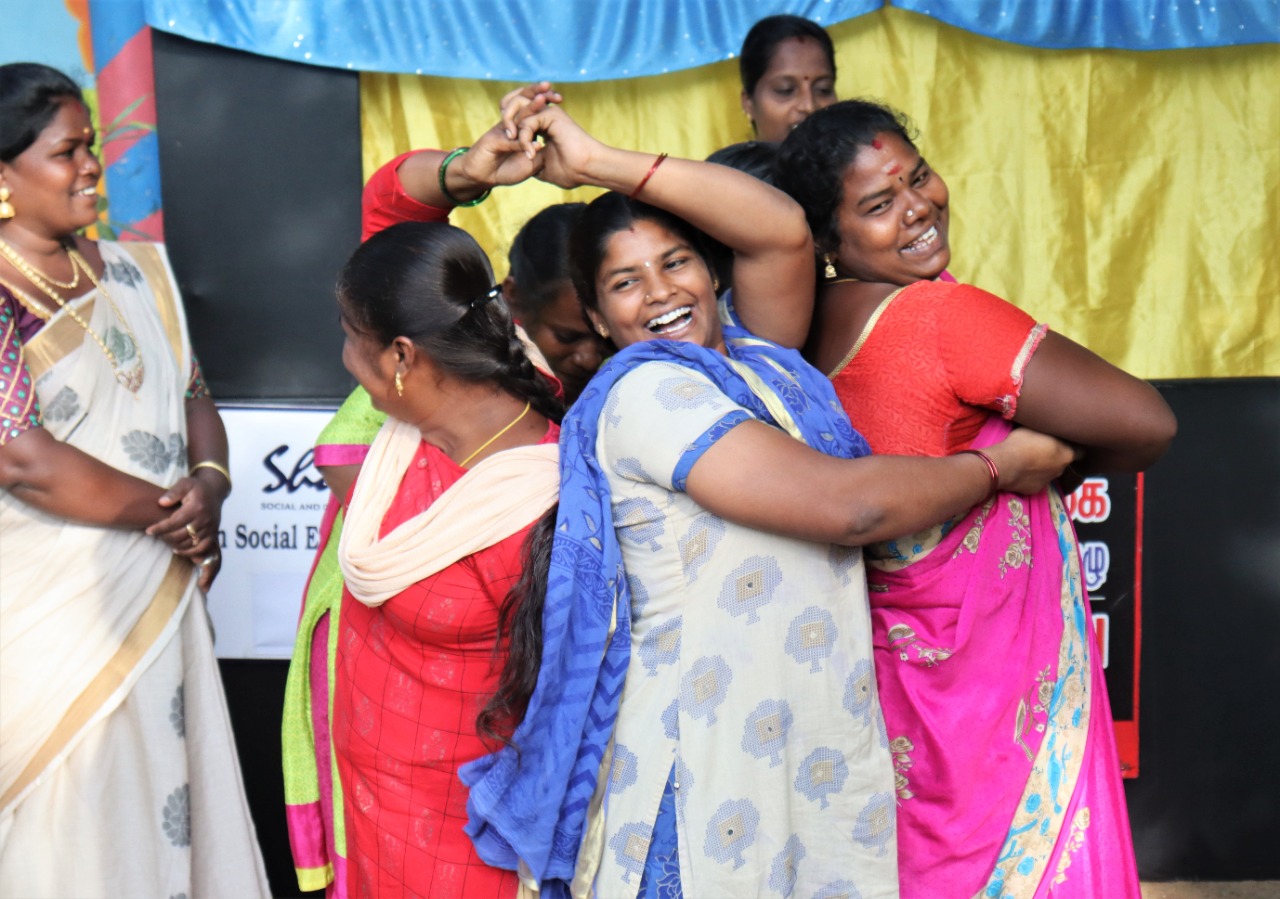
- That is what we learned when Nirmala from our Social Entrepreneurship Programme (SEP) was given a loan to buy a sewing machine. Never respected by her husband, today she doesn’t need that respect, she is not only able to generate income but wants to train others so they too become independent. A mother of three daughters, one of whom is enrolled in a vocational training program, the other sent to school by Sharana, she realizes the power of self-worth, skill, and education. Much like her Vidya from SEP is eager to give back from what she has gained. The strongest of statements come from the least expected. Thendral was an unfavored girl child whose education was halted after her 10th. Married off to an adulterous man she bought a vegetable cart with her loan. She pushes her cart to three different locations every day. She is through with blaming men and destiny, she believes in controlling her own life and urges women to stand up for other women, from courage comes strength.
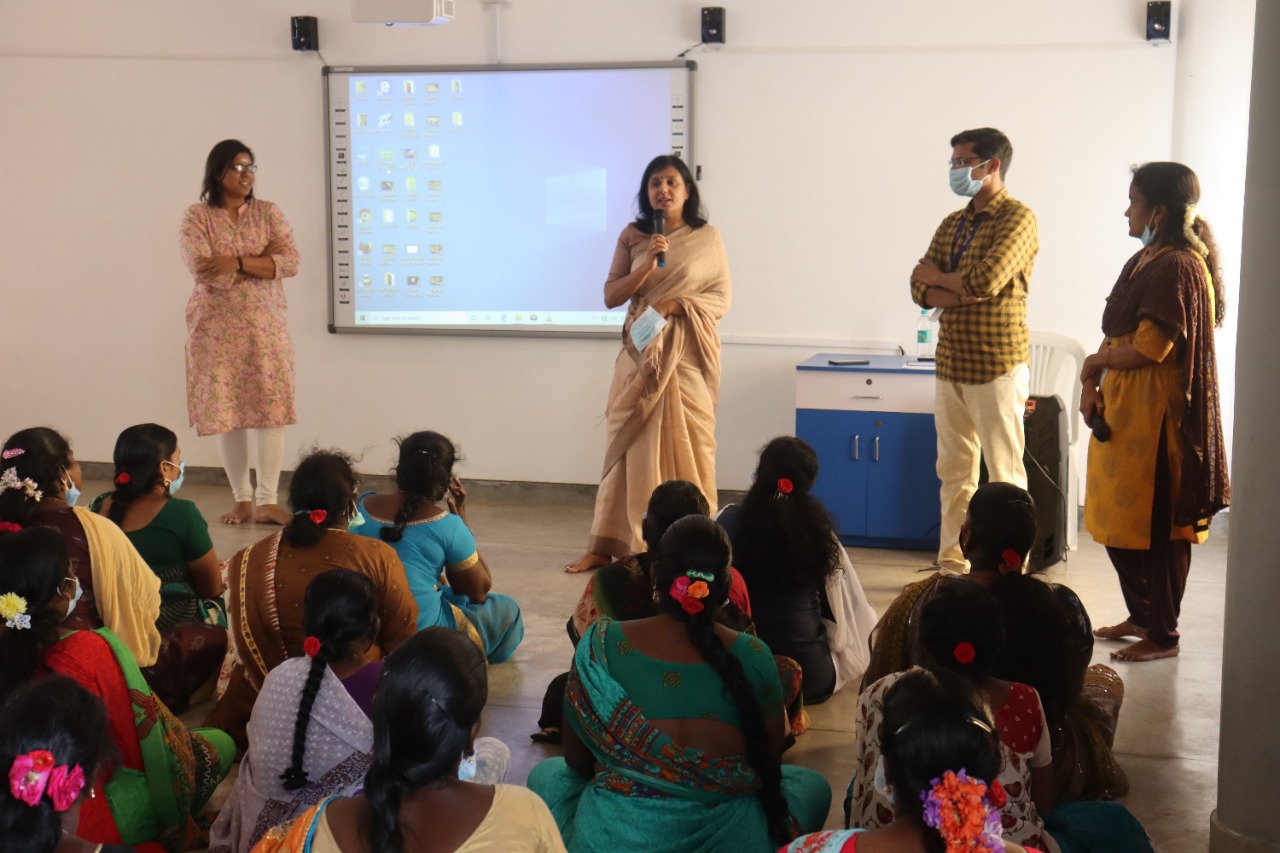
International Women’s Day is long past, so too the cyclic recycled discussions on the merits of having such a day. Hasn’t the world moved on? If parity is what women desire then why not a Men’s Day? While those with time to spare mull over these seemingly critical issues we at Sharana take this day seriously. What you’ve read above is how we make the day significant, constructive, and impactful. Women and children have been our primary focus and marking this day is at once a celebration, a reset of goals, and a reinforcement of our commitment towards being catalysts to their development.
- – all names and personal details have been changed to protect the identity of the women mentioned in the above blog
